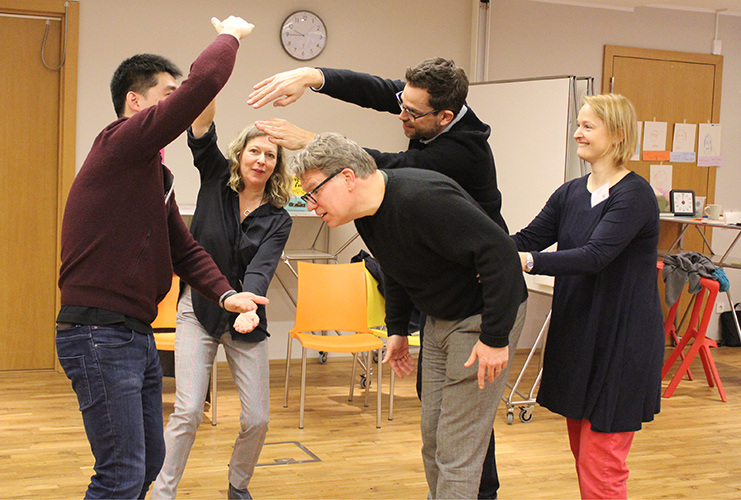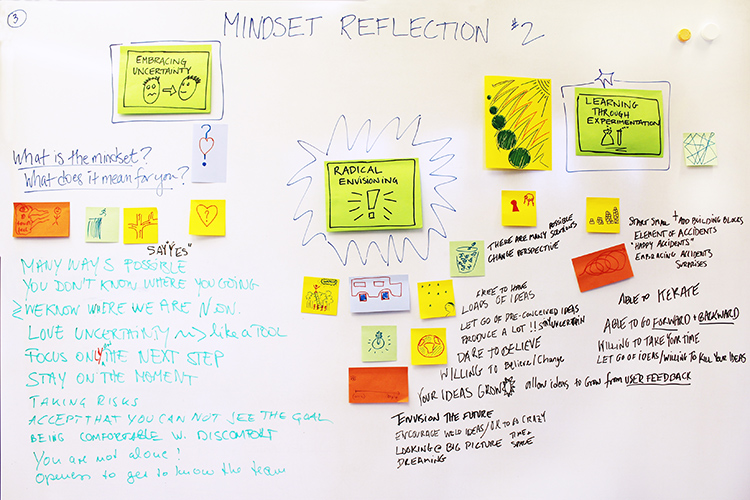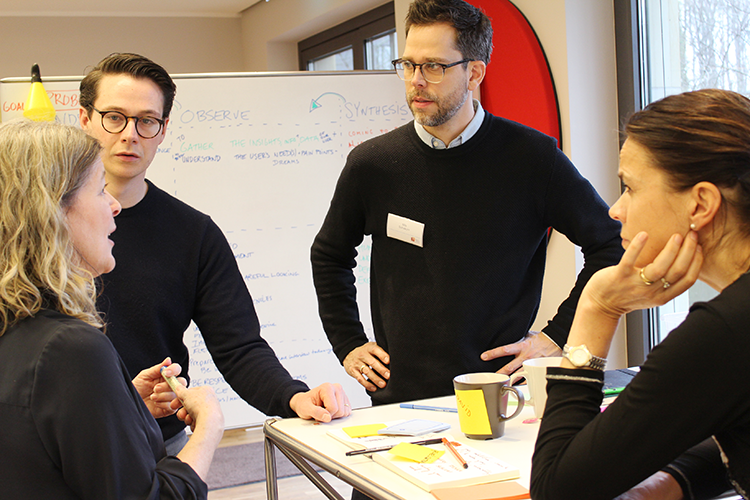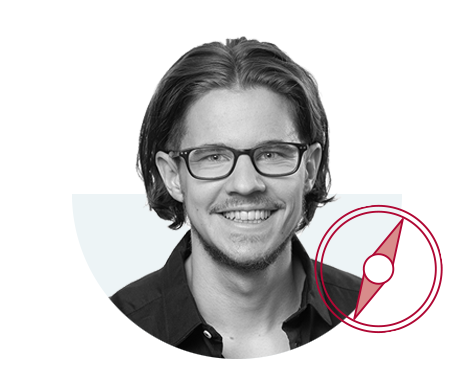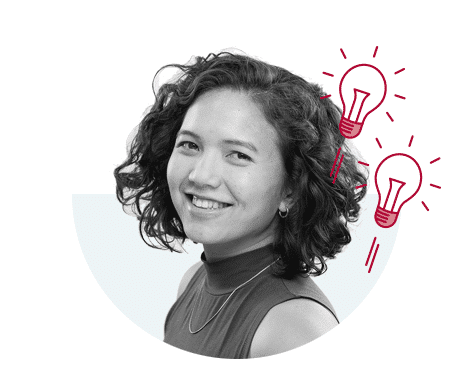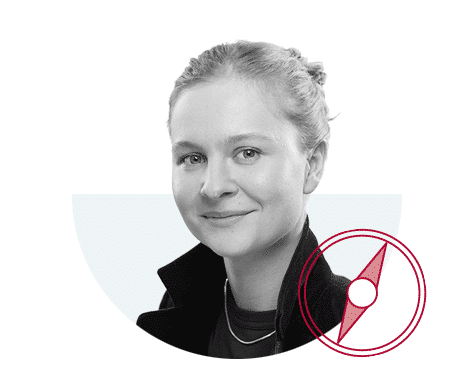We are looking forward to your call or e-mail. We will be happy to tailor this format exactly to your needs.

In-house training program for design thinking coaches
Today more than ever, continuous innovation, constant learning and effective collaboration are essential factors for successful companies. At the Hasso Plattner Institute (HPI) in Potsdam, we have been supporting organizations and teams with Design Thinking for about fifteen years in order to promote these factors.
For this to be successful, well-trained design thinking coaches are needed who recognize the potential of innovation teams and activate them in a targeted manner.
For this reason, the HPI Academy has designed an in-house training program for Design Thinking Coaches. The program aims to train a group of selected employees from an organization to become Design Thinking coaches and thus innovation multipliers in their respective departments.
Benefits:
For Your Organization
- Boost your organization’s innovation capability by building an internal network of design thinking coaches who can support teams in solving complex problems and foster a creative work culture.
- Shorten innovation cycles and improve the quality of solutions by implementing elements of design thinking in your organization.
- Achieve higher employee satisfaction by giving your staff the opportunity to expand their skills and engage in new areas.
- Benefit from a compact and intensive program that allows you to implement what you have learned immediately.
Benefits:
For the Participants
- Develop professionally and acquire new futureproof skills that will help you support teams in solving complex problems while keeping the user’s needs in mind.
- Expand your coaching skills and gain self-confidence through versatile practical experiences in a protected space.
- Expand your coaching skills and gain confidence through diverse practical experiences in a safe space.
- Build an internal network of like-minded people through intensive collaboration and regular exchange.
Key Facts
Vor Ort
Duration
The program consists of four modules
- Modules 1 to 3 last three days, Module 4 lasts four days.
Accordingly, the total duration of the program is 13 days. In between modules, a time span of three to five weeks is recommended. Zwischen den Modulen wird ein Abstand von 3 bis 5 Wochen empfohlen.
Participants
In order to run the program, we need a minimum of ten participants, however, these participants can also originate from affiliated or partner organizations.
Workshop language
The implementation is possible in German as well as in English.
Location
The training modules take place at a location proposed and organized by the customer; alternatively we but also have suitable training rooms, which we can offer on request.
Target audience
In order to successfully train employees as multipliers of an agile, person-centered work culture, the selection of participants should be done carefully. The following factors play a role:
- Position and/or role within the organization
- Previous experience in design thinking
- Coaching and/or teaching experience is useful
- Individual motivation
- Possibility to immediately apply/further practice what has been learned afterwards
If desired, the HPI Academy can support the selection process.
Costs
On request, depending on the number of participants.
Benefits
For your organization:
- Scale collaboration and innovation in your organization by having us train an internal group of coaches.
- Submit your own projects that have already been worked on by participants in the last module of the program and prepared for continuation.
- Benefit from a compact and intensive program where what you learn can be put into practice immediately afterwards.
For the participants:
- Expand your coaching skills and gain self-confidence through versatile practical experiences in a protected space.
- Receive detailed personal feedback on your coaching from our experienced HPI Academy trainers.
- Build an internal network of like-minded people through intensive collaboration and regular exchange.
Program structure
The core program consists of the following four modules:
Module 1: Design Thinking Process & Mindset
This workshop gives participants the opportunity to expand their understanding of Design Thinking, from a practitioner and coach perspective. There is an in-depth examination of the two core elements of design thinking: the mindset and the process. Both aspects will be examined more closely in an interplay of inputs, versatile exercises and subsequent reflection, and brought into line with the respective prior understandings. With a view to the transition to the second module, the focus of reflection is always on the coach perspective.
Module 2: Coaching a Team
This workshop gives participants the opportunity to expand their understanding of Design Thinking, from a practitioner and coach perspective. There is an in-depth examination of the two core elements of design thinking: the mindset and the process. Both aspects will be examined more closely in an interplay of inputs, versatile exercises and subsequent reflection, and brought into line with the respective prior understandings. With a view to the transition to the second module, the focus of reflection is always on the coach perspective.
Module 3: Coaching Practice
On day one, this module aims to delve deeper into the different process phases and to expand the participants’ repertoire of knowledge and methods. Then, the focus is on gaining further coaching practice to become confident in navigating a team through the DT process. The participants again receive personal, individual feedback on their coaching and reflect together.
Module 4: Coaching in Context
This workshop aims to place the activity of team coaching in the broader context of the company or organization.
The focus is on the various tasks associated with preparation and follow-up that are necessary to lead a successful Design Thinking project.
At the beginning of the module, different formats for design thinking projects will be explored. Using a real-world challenge submitted by a corporate sponsor, teams then design a detailed project roadmap that takes into account the big picture, such as the company’s organization or strategy, internal culture, or specific constraints.
At the end, participants present their work and draft a plan for the next steps.


